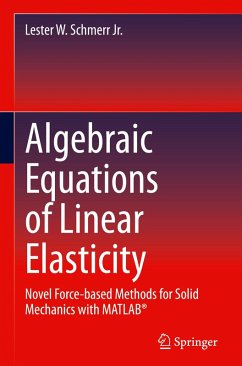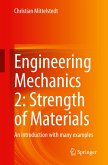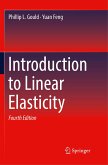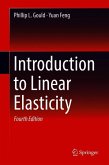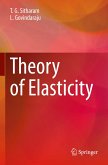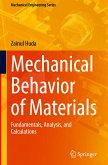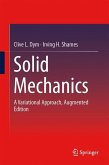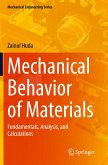This book describes a second-generation force-based method emerging from a general formulation where the partial differential equations of elasticity are replaced by equivalent algebraic equations. These algebraic equations of linear elasticity can be used to solve statically indeterminate problems in
reduced forms that define either the new second-generation force-based approach or a new displacement-based approach. The new force-based method can serve as the basis for teaching students at many technical levels how to solve equilibrium problems directly for the forces present. In
elasticity courses, the derivation and use of the algebraic equations of linear elasticity can show how the difficulties of dealing with partial differential equations may be avoided by transforming those equations into algebraic equations with work-energy concepts. In a finite element course, a force-based finite element method can be described along with the traditional displacement-based approach to demonstrate how the two methods provide alternative ways for solving complex structural problems. Serving as a resource for including second-generation force-based methods in solid mechanics courses
of an engineering curriculum, and as a robust learning resource, the book is ideal for instructors and for students, practicing engineers, and researchers.
reduced forms that define either the new second-generation force-based approach or a new displacement-based approach. The new force-based method can serve as the basis for teaching students at many technical levels how to solve equilibrium problems directly for the forces present. In
elasticity courses, the derivation and use of the algebraic equations of linear elasticity can show how the difficulties of dealing with partial differential equations may be avoided by transforming those equations into algebraic equations with work-energy concepts. In a finite element course, a force-based finite element method can be described along with the traditional displacement-based approach to demonstrate how the two methods provide alternative ways for solving complex structural problems. Serving as a resource for including second-generation force-based methods in solid mechanics courses
of an engineering curriculum, and as a robust learning resource, the book is ideal for instructors and for students, practicing engineers, and researchers.

